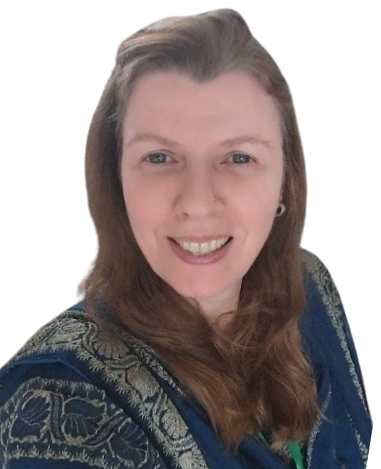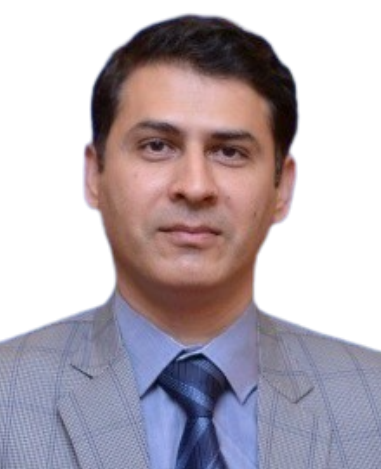Workshop - 5
Symposium cum Workshop on Emerging Trends in Clinical Genetics and Genomics

6. Expected Impact
This workshop will empower participants with practical skills to interpret genetic and genomic data, bridging the gap between research and clinical application. It will also foster collaboration between students, laboratory professionals, and clinicians — contributing to the advancement of precision medicine in Pakistan.
6. Facilitators/Resource Persons
1. Introduction
The field of clinical genetics and genomics is revolutionizing healthcare by enabling precise diagnosis, risk prediction, and targeted treatment strategies. With the increasing availability of high-throughput sequencing data, there is a growing need for professionals proficient in data interpretation, bioinformatics pipelines, and the application of genomic findings in clinical settings.
This workshop aims to combine expert-led plenary talks, panel discussion and hands-on dry lab training, offering participants a comprehensive overview of genomic applications in multiple domains — including inherited diseases, cancer genetics, microbial disease genomics, and genetic counseling.
2. Objectives
• Introduce participants to fundamental concepts and emerging trends in clinical genetics and genomics.
• Provide practical skills for genomic data analysis and interpretation.
• Highlight applications of genomics in inherited disorders, cancer, infectious diseases, and microbiome studies.
• Familiarize participants with the principles of genetic counseling.
• Foster interdisciplinary learning and professional networking.
3. Learning Outcomes
By the end of this workshop, participants will be able to:
1. Explain essential principles of clinical genetics and genomics.
2. Interpret genomic data for inherited, infectious, and cancer-related disorders.
3. Apply online and basic bioinformatics tools for variant and microbial genome analysis.
4. Appreciate the significance of genetic counseling in patient care.
5. Create networks and Collaborate effectively across research and clinical domains.
4. Target Audience
• Undergraduate and graduate students in life sciences, biotechnology, microbiology, molecular biology, and related disciplines.
• Residents and trainees in pathology, hematology, oncology, pediatrics, and infectious diseases with interest in genomics.
• Medical technologists and laboratory scientists working in molecular diagnostics.
• Researchers and faculty members seeking to update their genomics knowledge.
5. Tentative Schedule
Hands-on Dry Lab Workshop (Day 1) (30th October, 2025/Thursday)
Time: 02:00 PM – 04:00 PM
Place: Room F
Trainers
Mr. Hamid Ali (ELC Biogen) General Manager
Topic: NGS Lab workflow (pre-analytical, analytical & post-analytical Considerations)
Dr. Zaira Rehman (IHHN) Senior Computational Biologist
Topic: Bioinformatics Pipelines for RNA-Seq data and its Clinical Relevance.
Dr. Israr Nasir (JSMU) Professor of Pathology
Topic: ACMG Guidelines & introduction to clinical databases in genomic workflow.
Dr. Samih Alqawlaq (PhD) Executive Clinical Sales Specialist, Illumina
Topic: Multiomics to Cancer Genetics
Scientific Symposium (Day 2) (31st October, 2025/Friday)
Time: 2:00 AM – 4:00 PM
Place: Rom F
|
Time |
Topic |
Speaker |
|
14:00-14:05 |
Welcome & Opening Remarks |
Prof Aisha Mohyuddin (NUMS) |
|
14:05 – 14:25 |
Clinical Genetics in the post-genomic era |
Prof Muhammad Jawad Hassan (SIH) Consultant Medical Geneticist |
|
14:25 -14:45 |
Genomics of Inherited Diseases: From Variant to Diagnosis |
Prof Muhammad Ansar (QAU) |
|
14:45 – 15:05 |
Unravelling Rare Disease One Omic at a Time: Multiomic Approaches to Disease Research and Diagnostics. |
Dr. Samih Alqawlaq (PhD) Executive Clinical Sales Specialist, Illumina |
|
15:05-15:25 |
Non-invasive prenatal testing (NIPT): Implications and opportunities |
Prof M. Israr Nasir (JSMU) |
|
15:25-15:45 |
Ethical Frontiers in Genomics: Balancing innovation and responsibility
Genetic counselling for improved patient care |
Dr Natasha Anwar (AKUH) Miss Fizza Akbar (AKUH) |
|
15:45 -16.00 |
Q&A |

Prof Aisha Mohyuddin
Dean, Faculty of multidisciplinary Studies, NUMS
Dr. Aisha Mohyuddin is a molecular biologist and human geneticist with extensive research experience in genetic diversity, population genetics, and disease-associated mutations. She earned her Ph.D. in 2001 on the genetic diversity of Pakistani populations, producing the first comprehensive DNA-based compilation of HLA frequencies across major ethnic groups. Her pioneering work on Y-chromosome diversity identified novel molecular markers relevant to population and forensic genetics, alongside studies on mutations linked to rheumatic heart disease, cancer, and inherited eye disorders. She has over a decade of teaching experience at Shifa College of Medicine, where she developed a modern curriculum in Molecular Medicine, and since 2017 has been contributing to the establishment of the NUMS Institute of Advanced Studies and Research. In recognition of her contributions, she has received the Pride of Performance (2001), the Junior Scientist Award of the Pakistan Academy of Medical Sciences, and was named a Young Affiliate of TWAS in 2007.

Dr. Hamayoon Shafique Satti
Head, Section of Genetics, Department of Biological Sciences, NUMS
Dr. Humayoon Shafique Satti is an Assistant Professor at the National University of Medical Sciences (NUMS) with research expertise in clinical genetics and stem cell biology. He earned his Ph.D. in Biochemistry/Molecular Biology from Quaid-i-Azam University, Islamabad, in 2017, focusing on the therapeutic potential of bone marrow mesenchymal stem cells in conditions such as graft-versus-host disease and spinal cord injury. His current research spans the genetics of hematological and recessive disorders using NGS, RNA expression, and molecular assays, and he has published over 30 research articles. He is principal investigator on funded projects by HEC and PSF, and also contributes to large-scale international population studies, including UK Biobank, ALSPAC, and Born in Bradford, applying machine learning to investigate comorbidities and endophenotypes of irritable bowel syndrome.

Dr Zaineb Akram
Assistant Professor, Department of Biological Sciences, NUMS
Dr. Zaineb is working as Assistant Professor in Department of Biological Sciences, National University of Medical Sciences, Rawalpindi. She is investigating the genetics of hematological diseases like aplastic anemia, leukemia, fanconi anemia, hemolytic anemia etc. which are very common in the Pakistani population. She previously has been serving as Scientific Officer at a leading transplant center for ten years and also completed research trainings at National Institute of Health (NIH), USA, King’s College London (UK), and Swiss FlowCytometry School (Switzerland). She has trainings in genetic analysis, next generation sequencing, Sanger sequencing, and data analysis.

